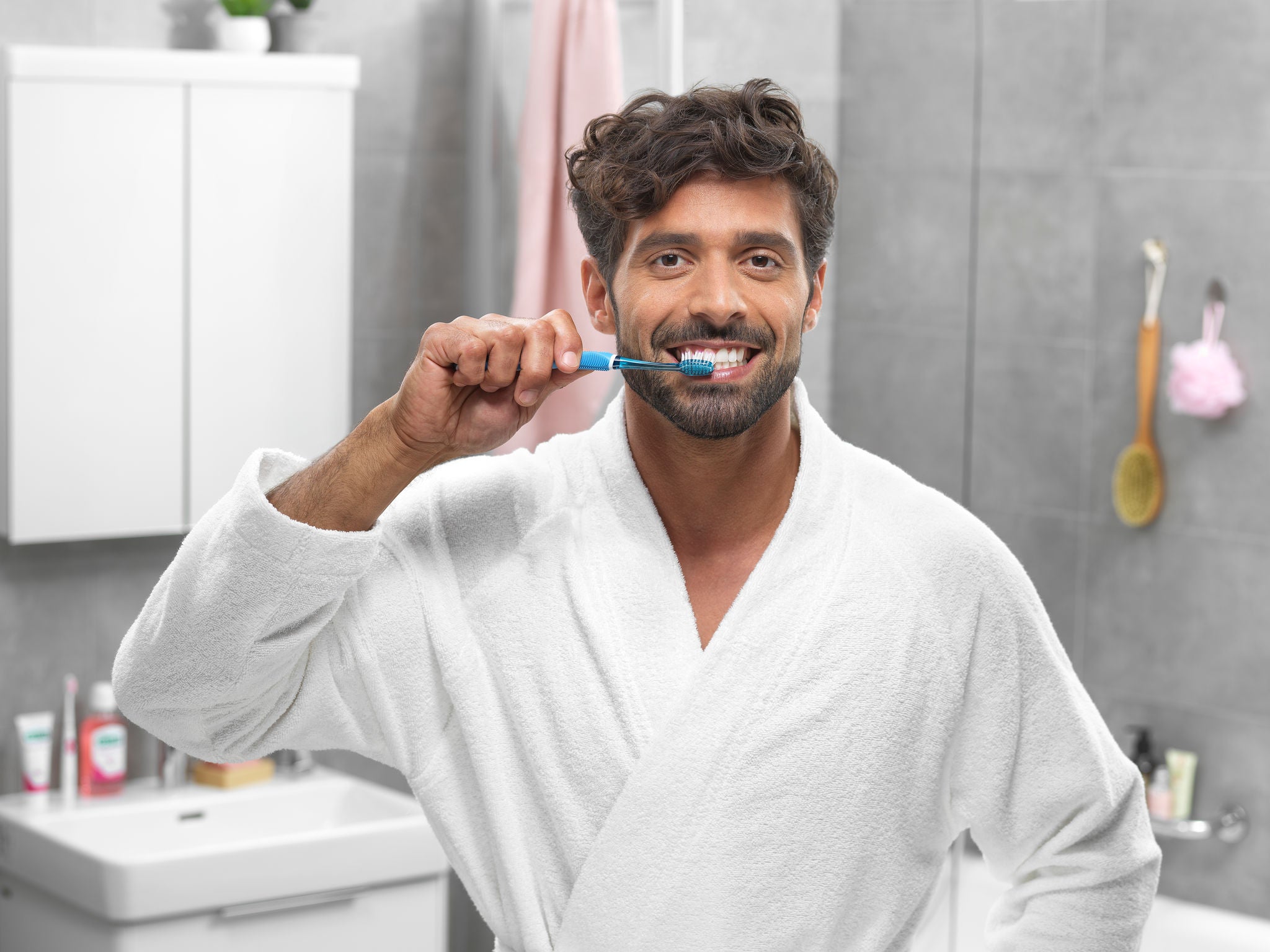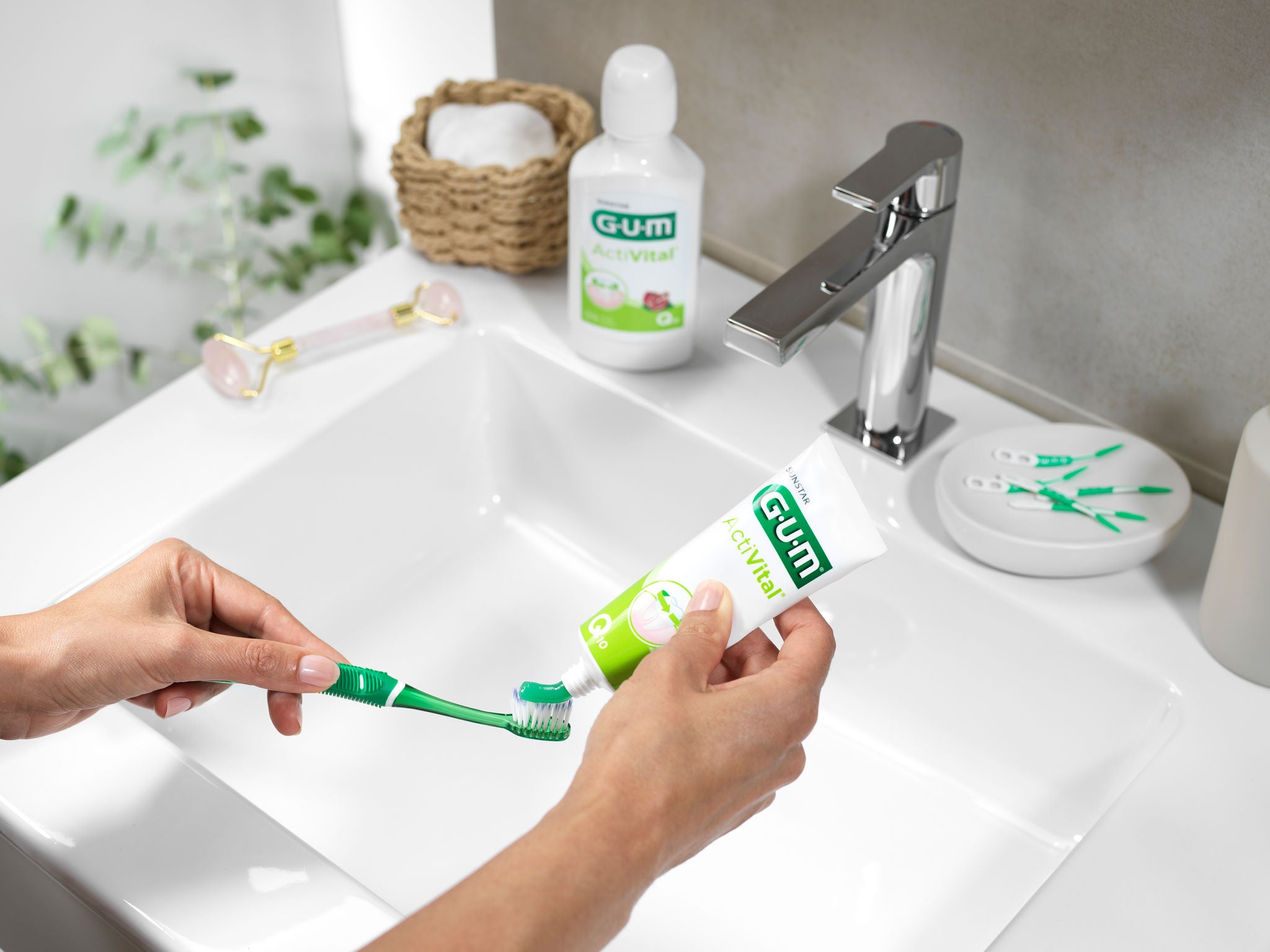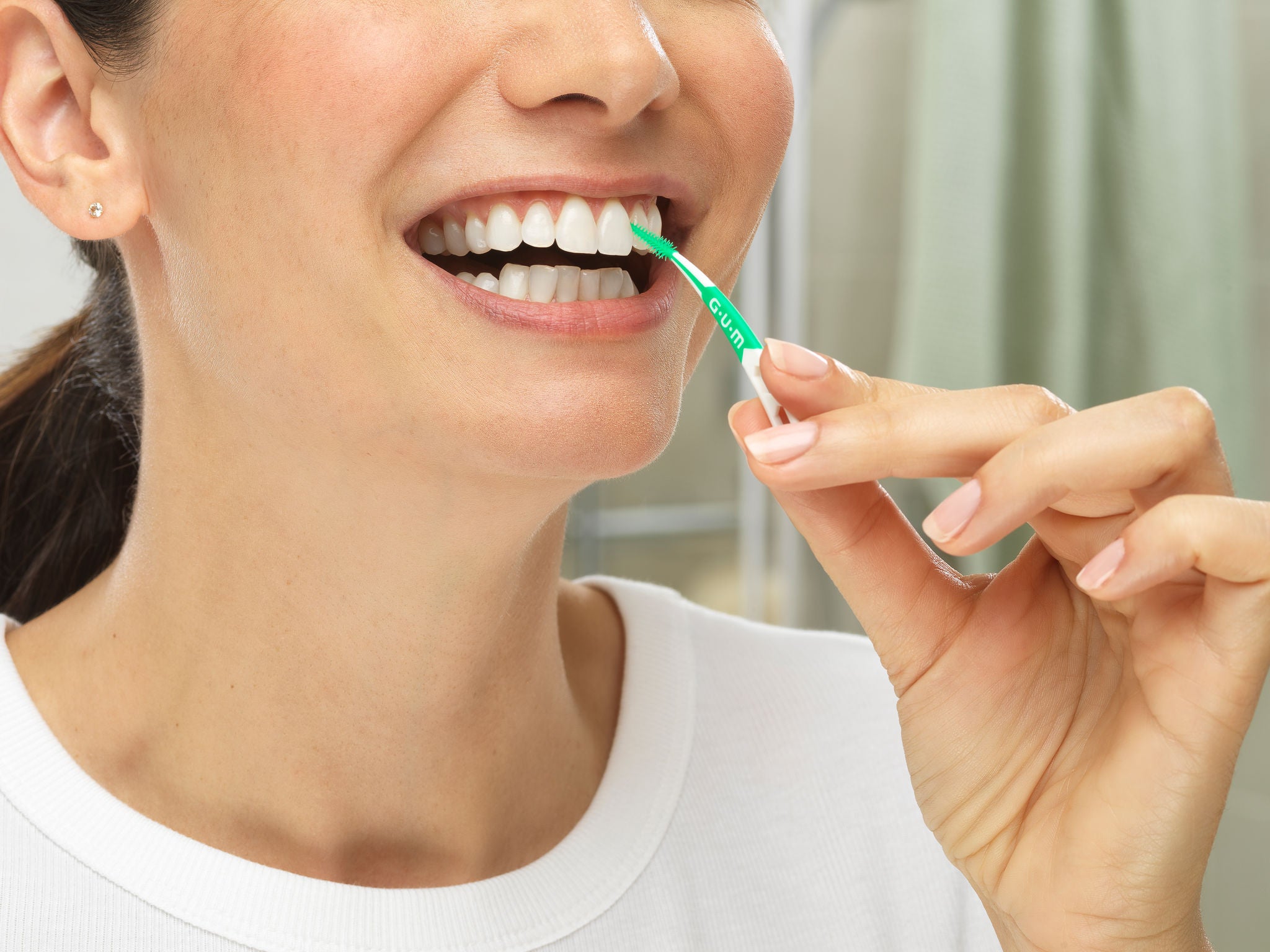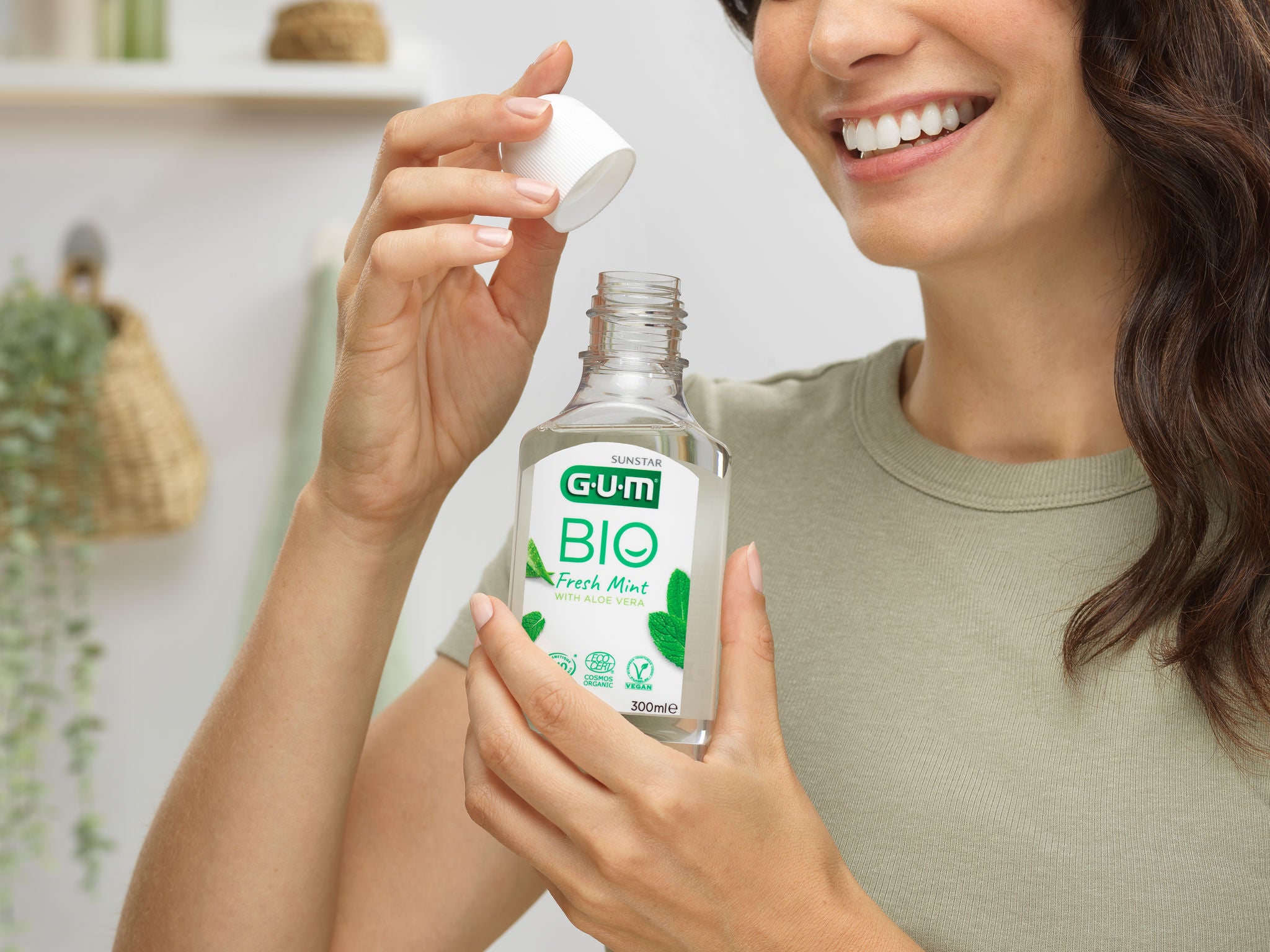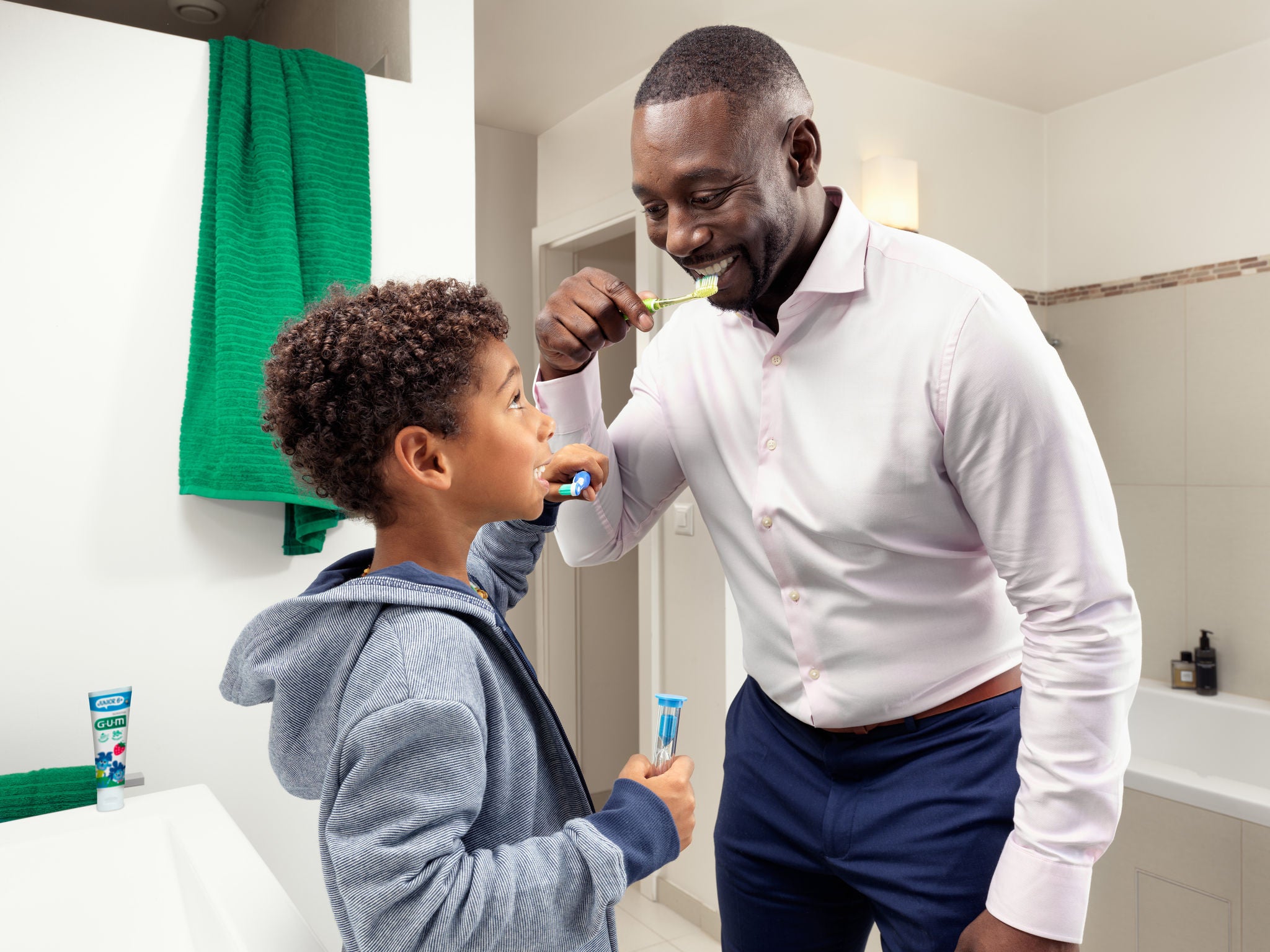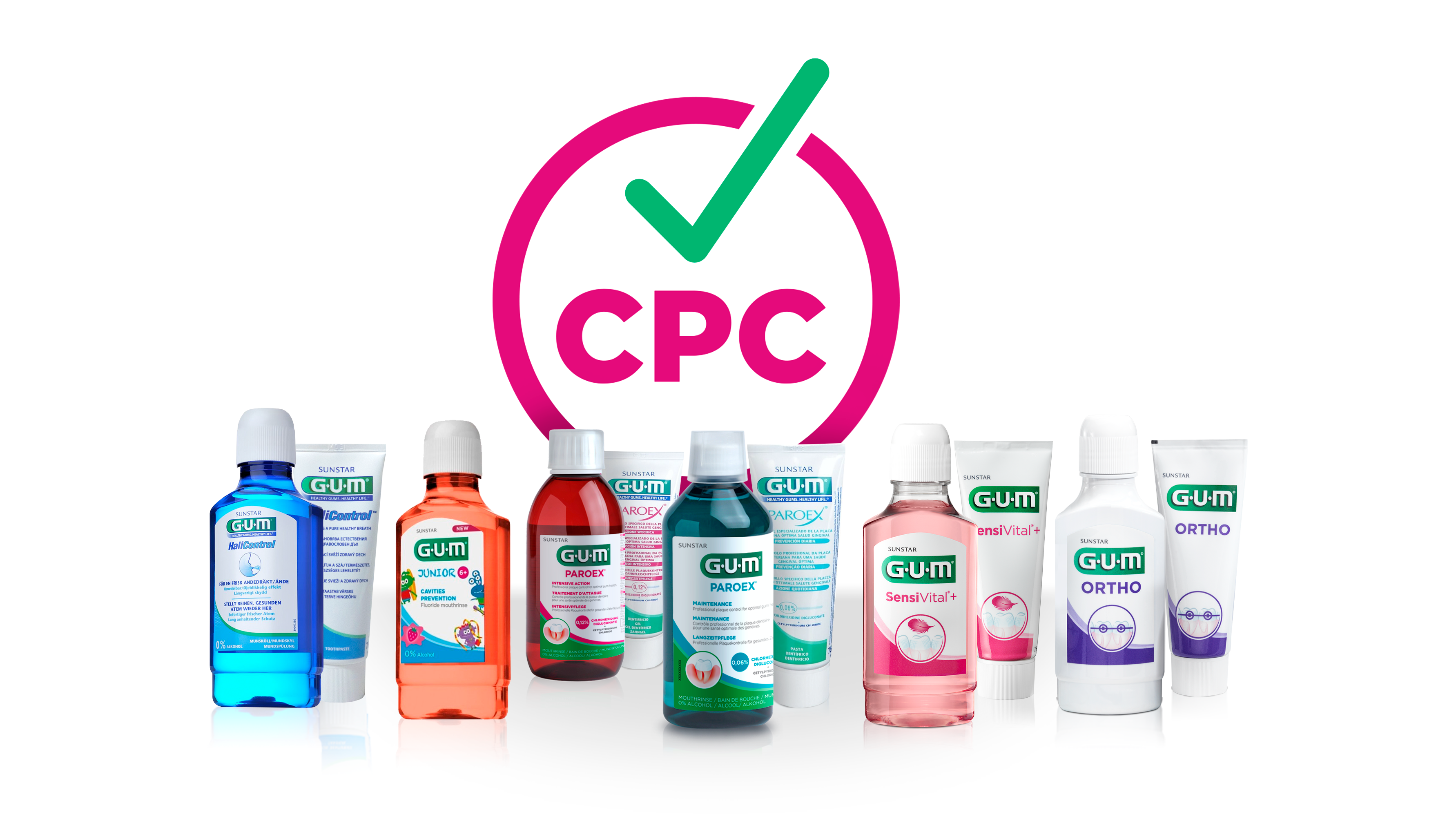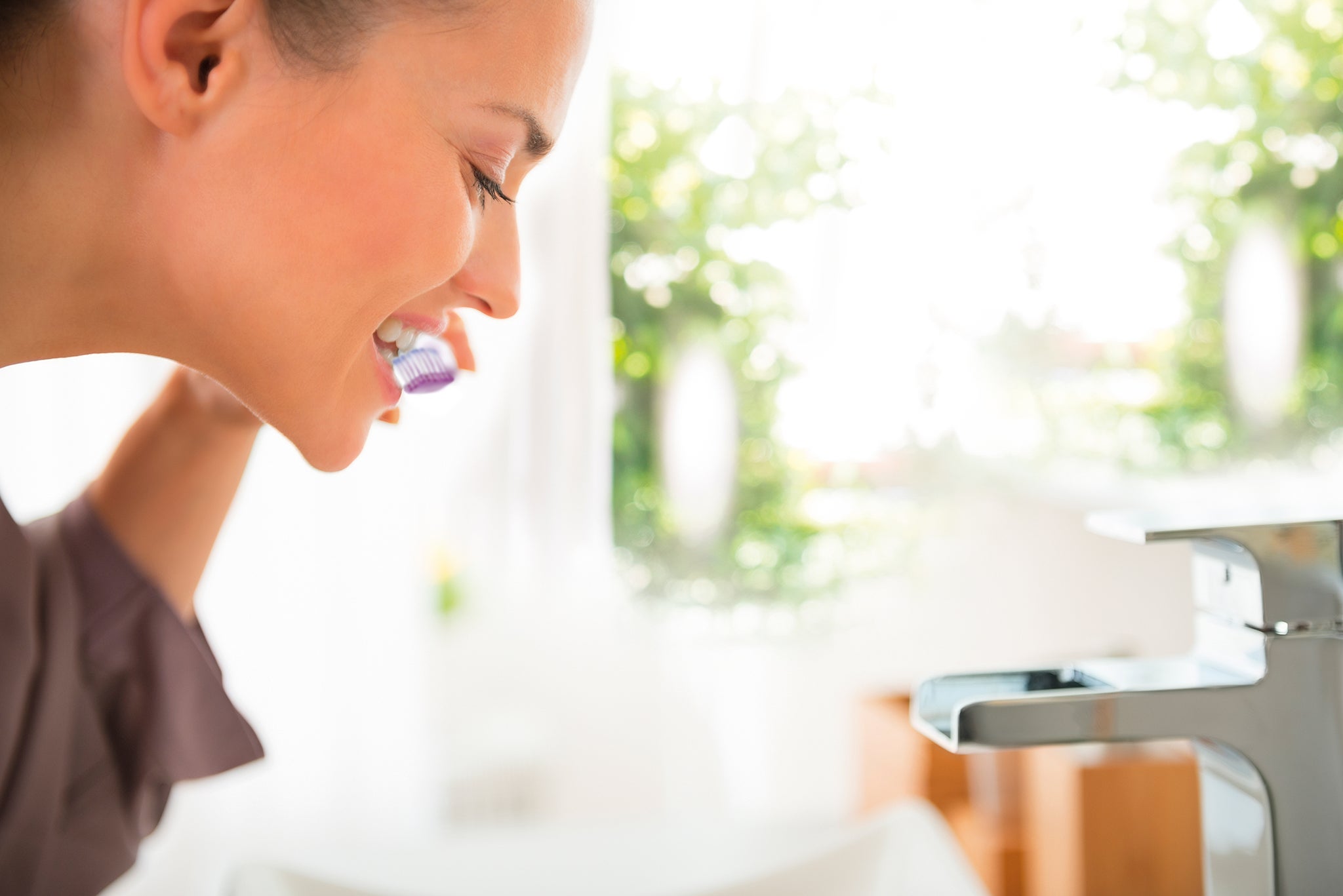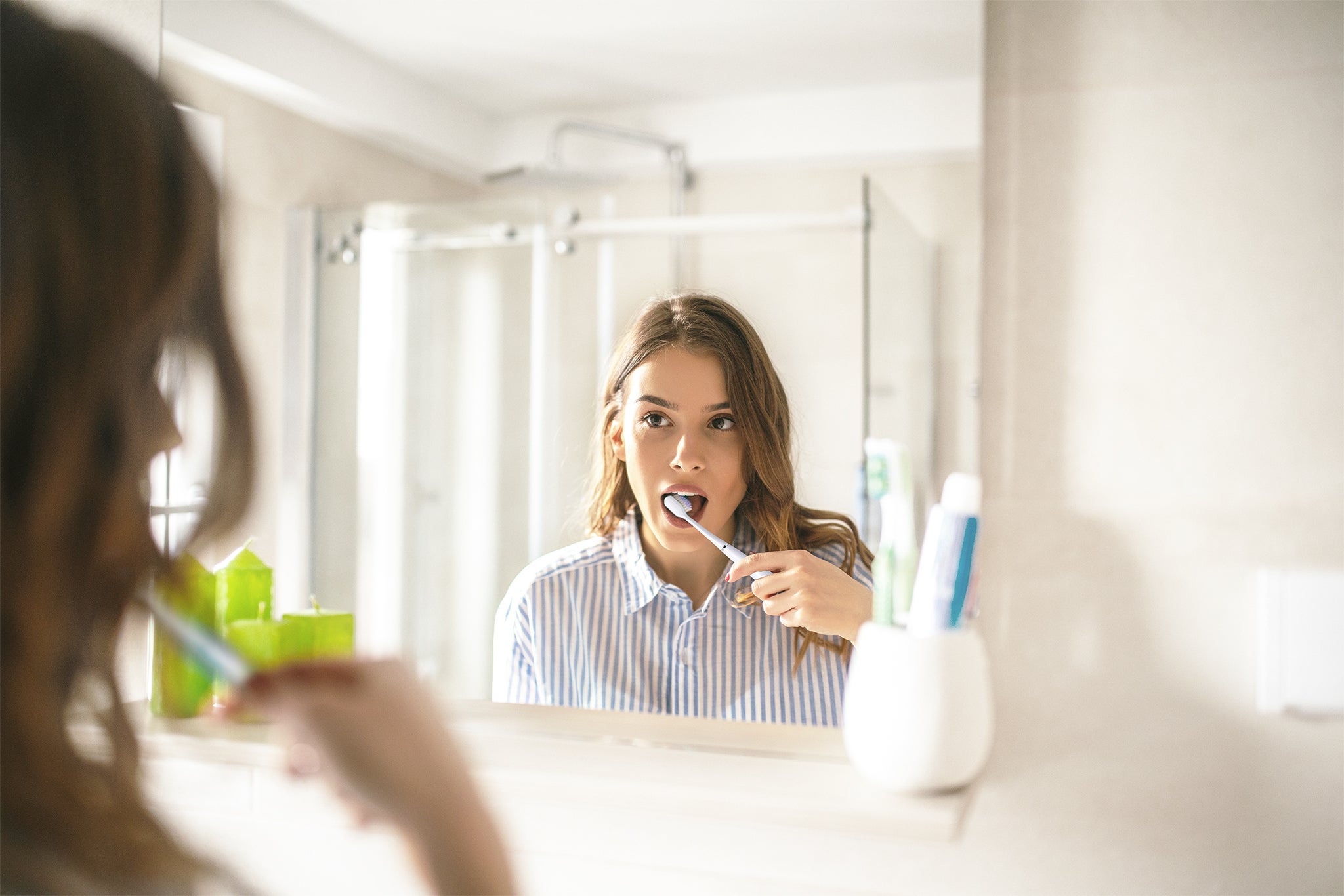
Best Oral Care Routine: What To Do And In What Order
One of the earliest self-care regimens we learn as children is how to brush our teeth. From an early age, we’re taught that brushing is something we should do every morning when we wake up and every evening before we go to bed. And while we all lose our baby teeth anyway, these habits form the foundation for better oral care as we age. Brushing twice each day is still a fundamental part of the best oral care routine - but it’s not the only thing you can do for your oral health and teeth.

Cleaning between your teeth and rinsing complement good brushing and can take your good oral care routine to a new level. These additional steps to enhance brushing are important - not just because your adult teeth are permanent, but because it's important to consider the mouth as an essential part of the rest of the body, because oral health and body health are linked.
How oral care benefits body health
Many people brush their teeth because they want a bright, white smile or because they’re scared of getting a cavity. While these are great reasons to brush, the benefits of adhering to a complete daily oral care routine impact your total health. Plaque accumulation and poor oral health are linked to many larger significant conditions, including:
- Diabetes
- Endocarditis, a condition of the heart caused by excess plaque buildup
- Cardiovascular (heart) disease
- Hypertension (high blood pressure)
- Certain cancers
- Pneumonia, caused by oral bacteria inhaled into the lungs
Daily oral care doesn’t simply ward off cavities – it also plays an important role in overall body health.
Learn more about how your oral health could be affecting your overall health.
Products needed for optimal oral care
There’s more to a great daily brushing routine than your toothbrush and toothpaste. To build the very best oral care routine, you need to find the correct oral care products that fit your needs. Each serves a very important role in total oral healthcare. Here’s a rundown of what you’ll need:
- Toothbrush: Experts recommend soft-bristle brushes, as they can prevent damage to your gum tissue and enamel and are more effective at removing plaque around the gum line and between teeth. Studies show that electric toothbrushes generally achieve better results in terms of plaque removal, so you might want to consider those. Have a look at our guide on “How to choose your toothbrush”.
- Toothpaste: Using fluorinated toothpaste is a great way to protect your teeth against cavities. It’ll help slow the breakdown of enamel (caused by bacteria) and speed up the remineralization process. The use of fluoride toothpaste is also recommended by professional organizations such as the European Federation of Periodontology (EFP) to prevent cavities. Follow your guide to choosing the right toothpaste to find the toothpaste that will work best for your oral health.
- Interdentals (floss, interdental brushes or picks): In order to remove as much plaque as possible, you’ll need to combine toothbrushing and interdental cleaning. Some people prefer flossing, some others interdental brushes or picks and others a combination of different tools. Floss is your best ally if you have tight teeth, but studies demonstrate that interdental brushes or picks are more efficient in removing plaque and they also massage and stimulate your gums. Have a look at our guide on “How to choose your interdental” or “How to choose your floss”.
- Mouthwashes: If you have special neeeds, such as following a surgery, look for an anti-plaque mouthwash, to reduce bad bacteria from your mouth. Have a look at our guide “How to get the most out of your oral care routine”
These are the products that should be in every person’s routine. They’re far from the only products out there - there are also gum stimulators and many more products designed to help every person create the best routine and own oral care rituals.
What are the signs of poor oral hygiene?
Common signs that your oral hygiene routine is ineffective include:
- Bleeding when brushing or flossing: Some minor bleeding may occur if you clean interdentally irregularly, but after committing to regular interdental cleaning for several days it should stop.
- Swollen gums: Plaque and tartar buildup around the gum line can irritate your gums, making them swollen and inflamed.
- Bad breath: Chronic bad breath, or halitosis, can be an early sign of gum disease.
- Dry mouth: Unhealthy mouths may produce less saliva than healthy mouths, compromising their ability to fight plaque buildup and infection.
- Receding gums: Loss of gum tissue could be a sign you’re brushing your teeth too hard and damaging your mouth, or that you’ve begun to develop gum disease.
- Tooth sensitivity: If your teeth or gums are overly sensitive to air or hot or cold temperatures, it may be because your enamel is beginning to wear away or because your roots are starting to get exposed.
- Tooth and mouth pain: Tooth and mouth pain can be caused by cavities, other tooth damage, or irritations caused by plaque and tartar buildup.
Having these products in your bathroom is one thing, but using them is another. It might seem like a lot of work to clean between your teeth, brush and rinse, but it’s recommended that you brush twice a day for two minutes and take the three full steps (cleaning between teeth, brushing and rinsing) one time per day, before going to bed. To get maximum results and superior oral health, you’ll need to put these products to work in the right way.
The best oral care routine, in the order you should follow it
You understand the role oral care plays in your whole-body health. You have the products necessary to care for your teeth and gums. Now, put it all together. Here’s a look at the best oral care routine - including the proper order for cleaning between your teeth, brushing and rinsing:
- Start by cleaning between your teeth using your interdental cleaner of choice, even before you brush. By cleaning between your teeth first, you’ll be able to brush away any debris you may have dislodged from between your teeth but didn’t remove from your mouth entirely. Move your interdental cleaner from left to right and from top to bottom. Learn more about how to clean in between your teeth properly.
- Brush your teeth for two minutes, spending one minute each on the top and bottom.
Learn more about how to brush your teeth properly. - Rinse thoroughly for 30 seconds using a mouthwash. If you do this at a different time than when you're brushing, it leaves your teeth protected with additional layer of fluoride while giving your toothpaste a chance to do its job.
See, it’s simpler than you might’ve thought - and chances are, you’re already doing this or something similar to it.
Follow this full checklist during your oral health routine to make sure you follow through with each step as thoroughly as possible.
As you can see, following a proper oral health care routine is simpler than you might have thought! And chances are, you’re already doing this or something similar to it.
Additional oral hygiene tips
- Never go to bed without brushing your teeth: Saliva production decreases during sleep, allowing plaque to form and acids to wear away at your tooth enamel faster.
- If flossing is uncomfortable, change your technique: Though flossing can produce gum bleeding, it should never be painful. If you’re hurting yourself while flossing, try changing your technique or using a different flossing implement, such as an interdental brush.
- Drink more water: Drinking water throughout the day helps flush harmful bacteria, food debris, and acids away from your mouth and gums. Most drinking water in the UK also has up to 1mg of fluoride added to it to help prevent tooth decay.
- Limit how much sugary and acidic food you eat: Sugary, acidic foods contain acids that will wear away at your tooth enamel if they remain in your mouth for too long. Avoid drinking excessive amounts of soda or eating excessive amounts of sugar, especially before bed.
- Eat foods that are good for your teeth: Eating a well-balanced diet and getting enough calcium, omega-3 acids, vitamin D, and other essential nutrients will help keep your teeth and gums healthy. Learn more about foods that are good for your teeth.
- Do not smoke. Smoking can severely damage your teeth, gums, and overall oral health.
- Limit alcohol consumption: Excessive consumption of alcohol has been linked to oral health concerns including tooth staining and an increased risk of oral cancer..
- Visit your dentist regularly: Scheduling appointments with dental professionals twice a year is one of the most effective ways to promote your oral health.
Build the best oral care routine for you
Like most routines, brushing and oral care aren’t one-size-fits-all. While brushing and cleaning between teeth technique could be the same, the products you use might be different. For example, if you have sensitive teeth, you might use a special toothpaste. Or, if you have orthodontics, you might use a rubber interdental pick and anti-plaque mouthwash solution to clean hard-to-reach areas. The best oral care routine is the one that addresses your specific oral health needs and that helps you develop and maintain your perfect fitting routine.
It’s always a smart idea to talk with your dentist or dental hygienist to see if he/she recommends any tips for your at-home oral care routine. A dentist-recommended toothpaste or a special mouthwash could give you the little extra bump you need to take your brushing, cleaning between teeth and rinsing habits from good to great.
Remember, the quality of your oral care products matter, too. The best oral care routine is backed by products you use.
Have a look at our product catalogue or contact SUNSTAR GUM® today to learn more about the products we provide. We want to help you build the best oral care routine and enjoy the great health benefits that come along with it.
